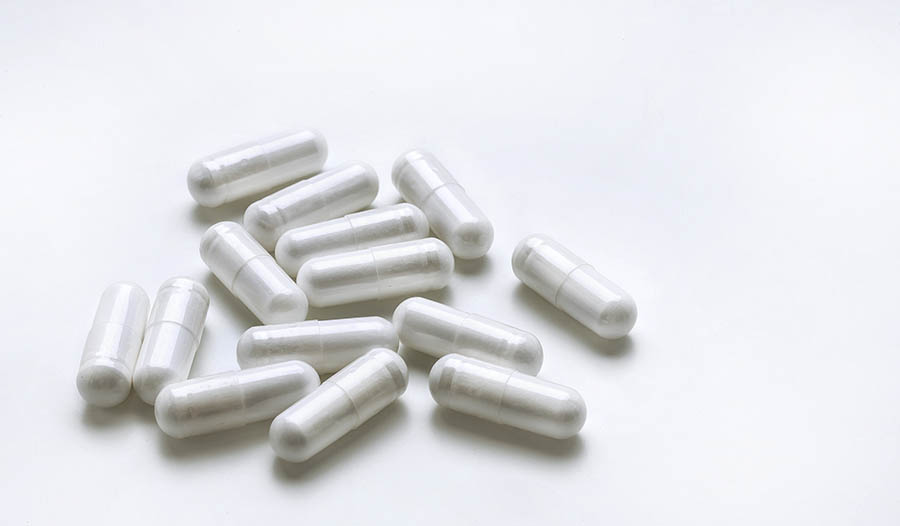Probiotic Benefits: From Microbiome Balance to Treating Dysbiosis and Beyond
DISCLAIMER:This blog does not intend to provide diagnosis...
- In this article:
- What Is the Human Microbiome?
- What Is Dysbiosis?
- What Are Probiotics?
- Probiotics and Gut Health Benefits
- Probiotics and Immune Health Benefits
- Probiotics and Antibiotic-Associated Dysbiosis
- Probiotics and Preventing Dysbiosis While Traveling
- Probiotic Benefits: Gas, Bloating, and Bowel Regularity
- Probiotic Dosage Recommendations

Originally posted August 2018 / Updated September 2023
The human microbiome, consisting of trillions of microorganisms, is crucial in maintaining overall health and well-being. This article explores the potential of probiotics, beneficial bacteria that can be consumed as supplements or through certain foods, to restore and maintain a harmonious balance within the microbiome, promoting optimal gut health and overall well-being and vitality.
What Is the Human Microbiome?
The microbiome is one of the hottest topics in medical research and among health enthusiasts. The human microbiome is the genetic material within the microbes that we harbor in our bodies. The number of microbiota—bacteria, viruses, and fungi—that live on or in the human body is enormous. Approximately 100 trillion microbial cells from 1,000 different species of microorganisms live within or on us in a truly symbiotic relationship. Thus, the human microbiome plays an integral role in our overall health.
What Is Dysbiosis?
Dysbiosis is when the microorganisms in the microbiome are out of balance. This state can lead to disturbances in gastrointestinal function such as gas, bloating, indigestion, leaky gut, and systemic imbalances, including anxiety, depression, disruption of the immune system, liver and detoxification function, blood sugar control, and hormonal balance.
What Are Probiotics?
Many people look to probiotic supplements to improve the microbiome and address dysbiosis. The term probiotic is derived from the Greek and means "for life."
Probiotics are the beneficial bacteria that inhabit the human intestinal tract. Probiotic dietary supplements provide freeze-dried bacteria or yeast that deliver live microorganisms to the gastrointestinal tract.
Probiotics and Gut Health Benefits
The use of probiotics is supported by significant clinical research with over 1,000 human double-blind, placebo-controlled studies. Much research has focused on using probiotics to promote gastrointestinal health and support immune function. Still, clinical research also supports the use of probiotics for supporting many other health goals.
Probiotics have been shown to possess many mechanisms to improve the gastrointestinal environment and make it less hospitable for less desirable microbes. For example, many undesirable organisms must bind to the gastrointestinal tract lining to colonize effectively. Some strains of probiotics can adhere to the epithelium and act as "colonization barriers" by preventing undesirable bacteria (and yeast) from sticking to the lining of the gastrointestinal tract.
Probiotics also produce antimicrobial compounds known as bacteriocins. The release of these compounds by probiotic organisms results in a beneficial microbiome modification. Some of the antimicrobial activity of probiotics has also been shown to be due to their production of hydrogen peroxide and organic acids like lactic and butyric.
The production of these small organic acids also helps maintain an optimal intestinal pH and nourish other health-promoting organisms and, in the case of butyric acid, provides the critical energy source for the cells that line the large intestine.
Probiotics also compete for nutrients that undesirable microorganisms would otherwise utilize. Probiotic organisms in sufficient numbers can use most of the available prebiotic nutrients, inhibiting the growth of unwanted microbes.
Probiotics and Immune Health Benefits
Lastly, probiotics also stimulate the immune response. For example, probiotics can increase the secretion of immunoglobulin (Ig) A – an antibody that lines our intestinal tract to act as a first line of defense from infection. IgA is a nonspecific antibody that can bind to and neutralize unwanted microorganisms. Certain probiotics have also shown an ability to activate key immune system cells (natural killer cells, macrophages, and T-lymphocytes).
Many more benefits of probiotics have been discovered outside of gastrointestinal effects. However, the primary focus in clinical research has been using probiotics to support gastrointestinal health. Over 500 double-blind studies have focused on probiotics in gastrointestinal dysbiosis, with the most studied being the dysbiosis that occurs with antibiotic use, traveling to undeveloped countries, and the imbalance that results in gas, bloating, and irregular bowel movements.
Probiotics and Antibiotic-Associated Dysbiosis
One of the most well-documented uses of probiotic supplementation is helping to prevent antibiotic-associated dysbiosis (AAD), which develops in a person taking or recently taking antibiotics.
Most antibiotics kill off disease-causing organisms (pathogens) and beneficial bacteria. This action leads to significant microbiome disruption and diarrhea development in about 35% of people who take antibiotics.
Probiotics may help protect against AAD and the more severe form that involves an overgrowth of Clostridium difficile, a potentially pathogenic bacteria. Probiotics prevent AAD and the overgrowth of C. difficile through all the mechanisms described above. The best results are seen when the probiotic is given within the first two days of the first dose of an antibiotic. Generally, probiotic products containing multiple strains and higher colony-forming units (e.g., 30 to 100 billion) are recommended for AAD.
Probiotics and Preventing Dysbiosis While Traveling
Another scenario where probiotics have gained considerable popularity is in helping protect against dysbiosis while traveling. This dysbiosis occurs by ingesting unfamiliar microbes in water, food, or beverages.
Clinical trials with probiotics in traveler's dysbiosis have been inconsistent and highlight that different probiotics will produce different results. One analysis of published clinical trials sought to determine which strains of probiotics might be most effective and safe for the prevention of traveler's dysbiosis. Results showed that Saccharomyces boulardii, a beneficial yeast, was the only probiotic significantly reducing dysbiosis while traveling.
Probiotic Benefits: Gas, Bloating, and Bowel Regularity
The clinical research on probiotics for these common digestive disturbances is also mixed. An analysis of published clinical trials was designed to provide the relative rank order of probiotics for gas, bloating, and bowel irregularity.
Results showed that eight weeks of supplementation with the probiotic Bacillus coagulans showed the highest probability of being the most likely probiotic species to produce an improvement. There have been at least eight double-blind, placebo-controlled trials with B. coagulans all showing significant positive effects in relieving minor digestive complaints. A study involved 40 subjects (18-65 years) randomized to receive a placebo or B. coagulans 6 billion CFU/day) for 80 days. With the B. coagulans supplementation, significant improvements were observed in gas, bloating, bowel irregularity, and other issues associated with indigestion. A little more than 60% of the subjects taking the B. coagulans supplement had complete relief.
Probiotic Dosage Recommendations
The quality of probiotic supplements depends on two main factors: (1) the characteristics of the strains contained in the supplement and (2) adequate viability so that sufficient numbers of bacteria are viable at the point of consumption. Viability at consumption depends on factors such as proper manufacturing and the "hardiness" of the strain, as well as packaging and storage of the product in the right amount of moisture and at the correct temperature.
With probiotics, as with other supplements, be a smart consumer and choose products that will provide the benefits that you are looking for. The information above provides some guidance on the best probiotic strains and dosage to help prevent antibiotic-associated and traveler dysbiosis, gas, bloating, and bowel irregularity.
The dosage of probiotic supplements is most often based on the number of live organisms present in the product referred to in CFUs (colony-forming units). It is, therefore, essential to use products that list the number of live organisms at expiration versus at the time of manufacture (which means nothing). For general health, the best results are most often attained by taking between 5 billion and 30 billion CFU daily.
References:
- Colella M, Charitos IA, Ballini A, Cafiero C, Topi S, Palmirotta R, Santacroce L. Microbiota revolution: How gut microbes regulate our lives. World J Gastroenterol. 2023 Jul 28;29(28):4368-4383.
- Pramanik S, Venkatraman S, Karthik P, Vaidyanathan VK. A systematic review on selection characterization and implementation of probiotics in human health. Food Sci Biotechnol. 2023 Jan 10;32(4):423-440.
- Sanders ME. Impact of probiotics on colonizing microbiota of the gut. J Clin Gastroenterol. 2011 Nov;45 Suppl:S115-9.
- Rueda-Robles A, Rodríguez-Lara A, Meyers MS, Sáez-Lara MJ, Álvarez-Mercado AI. Effect of Probiotics on Host-Microbiota in Bacterial Infections. Pathogens. 2022 Aug 29;11(9):986.
- Liao W, Chen C, Wen T, Zhao Q. Probiotics for the Prevention of Antibiotic-associated Diarrhea in Adults: A Meta-Analysis of Randomized Placebo-Controlled Trials. J Clin Gastroenterol. 2021 Jul 1;55(6):469-480.
- Goldenberg JZ, Yap C, Lytvyn L, Lo CK, Beardsley J, Mertz D, Johnston BC. Probiotics for the prevention of Clostridium difficile-associated diarrhea in adults and children. Cochrane Database Syst Rev. 2017 Dec 19;12(12):CD006095.
- Zhang L, Zeng X, Guo D, Zou Y, Gan H, Huang X. Early use of probiotics might prevent antibiotic-associated diarrhea in elderly (>65 years): a systematic review and meta-analysis. BMC Geriatr. 2022 Jul 6;22(1):562.
- Shen NT, Maw A, Tmanova LL, Pino A, Ancy K, Crawford CV, Simon MS, Evans AT. Timely Use of Probiotics in Hospitalized Adults Prevents Clostridium difficile Infection: A Systematic Review With Meta-Regression Analysis. Gastroenterology. 2017 Jun;152(8):1889-1900.e9.
- Collinson S, Deans A, Padua-Zamora A, Gregorio GV, Li C, Dans LF, Allen SJ. Probiotics for treating acute infectious diarrhoea. Cochrane Database Syst Rev. 2020 Dec 8;12(12):CD003048.
- McFarland LV, Goh S. Are probiotics and prebiotics effective in the prevention of travellers' diarrhea: A systematic review and meta-analysis. Travel Med Infect Dis. 2019 Jan-Feb;27:11-19.
- Konstantis G, Efstathiou S, Pourzitaki C, et al. Efficacy and safety of probiotics in the treatment of irritable bowel syndrome: A systematic review and meta-analysis of randomised clinical trials using ROME IV criteria. Clin Nutr. 2023 May;42(5):800-809.
- Zhang T, Zhang C, Zhang J, Sun F, Duan L. Efficacy of Probiotics for Irritable Bowel Syndrome: A Systematic Review and Network Meta-Analysis. Front Cell Infect Microbiol. 2022 Apr 1;12:859967.
- Gupta AK, Maity C. Efficacy and safety of Bacillus coagulans LBSC in irritable bowel syndrome: A prospective, interventional, randomized, double-blind, placebo-controlled clinical study [CONSORT Compliant]. Medicine (Baltimore). 2021 Jan 22;100(3):e23641.

 By Dr. Michael Murray, N.D.
By Dr. Michael Murray, N.D. 


